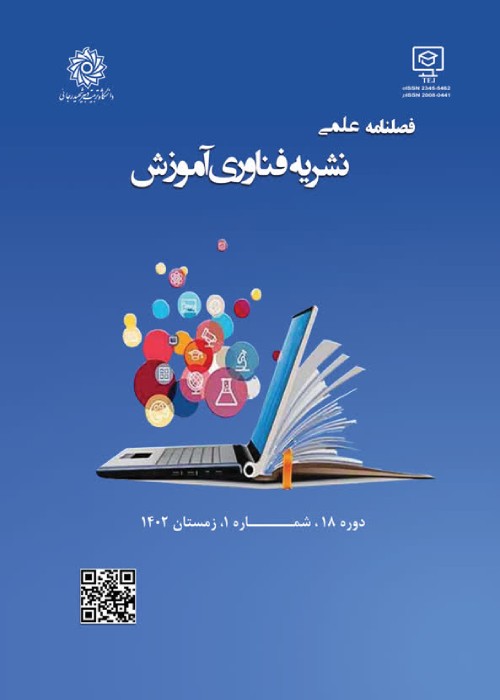Assessment of teaching and learning system in e-higher education, Case Study: Faculty of Psychology and Educational Sciences at the University of Tehran
Evaluating the quality of the teaching-learning system is a process that is done to improve the quality and increase stakeholder’s satisfaction with e-learning programs, and in line with the development of university e-learning courses, attention to the evaluation of the quality of these courses has become important in several ways. First, the managers and staff of these courses need continuous self-evaluation to increase the quality of the courses. Second, the identification of quality e-learning courses at the national and international levels will help to develop the horizons of activities in this field. Finally, the development of e-learning will allow more attention to customer orientation in higher education and education customers can choose the best option by identifying quality university courses. The aim of current study is the evaluation of learning-teaching system from the students’ viewpoint at the Faculty of Psychology and Education in the University of Tehran. Also, the research seeks to find the main related factors and variables with the evaluation of e-learning system.
The current research is applied and descriptive-correlational and the research population included all students who were studying in the academic year 1394-95. The sample included 175 students selected by simple random sampling. In this study, after reviewing the literature about measuring quality at different context, 28 main indicators affecting quality of online teaching-learning systems are identified and after the survey of experts, the final model is designed. This model consists of training, technology, communication, evaluation, management, resource support, ethical and institutional dimensions based on Badhal Khan's model. Then, the research data were analyzed based on the questionnaires and research questions
The results of the structural analysis indicated that the model is fit. Also the results revealed that the management actor had the most and the ethical factor has the least connection to the quality of teaching-learning system from the perspective of the students
In general, the results of this study showed that in terms of desirability, students' attitudes about assessment factors in e-learning courses are at a relatively desirable level, which indicates some strengths and weaknesses of the e-learning system in the country that can provide valuable information. This provides for managers and officials of the country's higher education system to adopt principled policies and use appropriate strategies and strategies to improve and enhance the quality of dimensions, and by allocating resources and reviewing the development of appropriate standards and mechanisms for the system have proper planning and e-learning.
- حق عضویت دریافتی صرف حمایت از نشریات عضو و نگهداری، تکمیل و توسعه مگیران میشود.
- پرداخت حق اشتراک و دانلود مقالات اجازه بازنشر آن در سایر رسانههای چاپی و دیجیتال را به کاربر نمیدهد.




